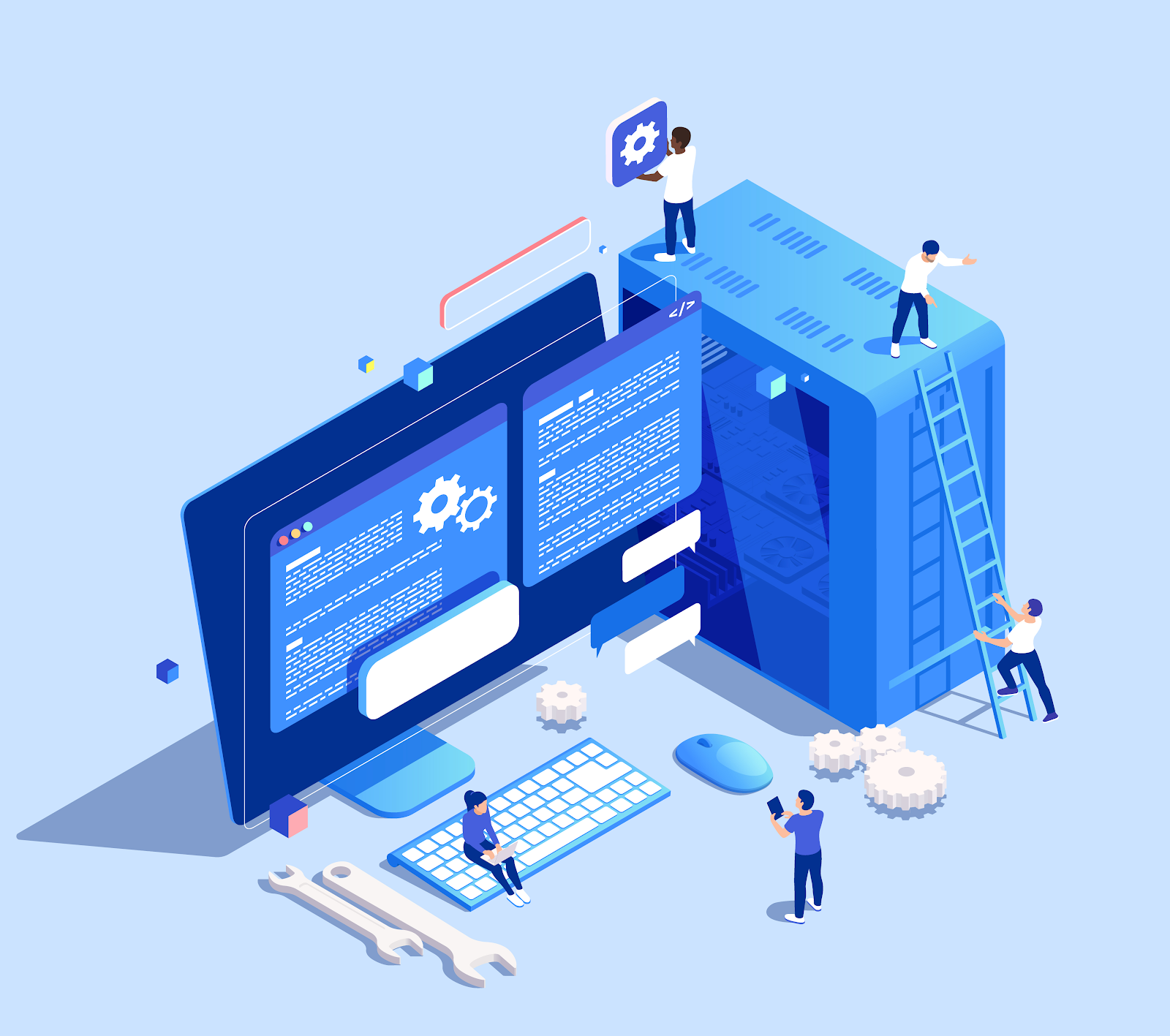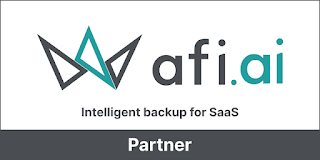Contrary to popular belief, relying solely on Microsoft and Google for data backup is not foolproof. While they offer some level of redundancy to protect against hardware failures, natural disasters, and infrastructure issues, they fall short when it comes to safeguarding against user error, malicious behavior, or software faults.
In reality, these tech giants lack native mechanisms to comprehensively protect user data from all potential threats. This means that crucial files can still be at risk of permanent loss due to accidental deletions, cyber-attacks, or software-related issues. To address this gap in data protection, organizations are turning to third-party backup solutions. These solutions provide an additional layer of security by offering features like automated backups, version history, and granular recovery options.
By implementing third-party backup solutions, businesses can ensure that their data is safe and secure, even in the face of unforeseen challenges. Whether it's recovering from a ransomware attack or retrieving accidentally deleted files, having a sturdy backup solution in place is essential for maintaining business continuity and protecting valuable assets.
Backing Up Mailboxes
Outlook users may be surprised to learn that Microsoft's default data retention policy spans only 30 days. Once this timeframe elapses, the data becomes permanently inaccessible, rendering point-in-time restoration of mailbox items unattainable.
Unfortunately, Microsoft Exchange lacks support for point-in-time mailbox item restoration, leaving users searching for alternative solutions. While some third-party options offer this functionality, they often come at an additional cost, surpassing the expenses incurred by extending the default data retention policy through Microsoft licenses.
Moreover, extending the default data retention policy doesn't guarantee point-in-time recovery or the preservation of data in its original structure. This limitation underscores the importance of exploring other backup solutions.
On the other hand, SharePoint and OneDrive boast an internal backup solution that enables users to restore the entire state of their drive or SharePoint site to a specific point within the 30-day window. However, this approach necessitates restoring the entire site or drive, resulting in the loss of any changes made post-restoration point selection. Thus, while this internal backup solution offers some level of data recovery, it may not be suitable for scenarios requiring selective restoration without sacrificing recent changes.
Microsoft 365 & Google Workspace Data Recovery
Retrieving the state of a folder from three days ago, let alone 31 days ago, can pose a significant challenge. While specific objects can be recovered within a limited timeframe, this process relies on knowing the object's name and owner.
Unfortunately, the default backup solution lacks granular file-level restoration capabilities. This means that restoring specific files or folders can be cumbersome, as it requires restoring the entire SharePoint site or Drive, potentially resulting in data loss for unrelated files or changes.
In contrast, library items in SharePoint and OneDrive benefit from full version history by default. However, if a file goes missing or previous versions are intentionally removed, users must resort to searching through unstructured data in the recycle bin logs.
Once removed from the recycle bin, data becomes irreversibly lost, with a window of only 90 days (approximately three months) to attempt recovery. This underscores the importance of proactive data management and backup strategies to mitigate the risk of permanent data loss.
Choosing the Right Backup Product
When evaluating backup solutions, it's essential to take various factors into account, including cost, user-friendliness, and data retention capabilities. Each of these aspects plays a vital role in determining the suitability of a backup product for your organization's specific requirements and financial constraints.
Cost is a significant consideration, as it directly impacts your budget allocation for backup services. However, it's equally important to balance cost considerations with the effectiveness and comprehensiveness of the backup solution.
Ease of use is another critical factor to consider, especially for organizations with limited technical expertise or resources. A user-friendly backup solution can streamline the implementation process and reduce the need for extensive training or support.
Data retention capabilities dictate how long your backed-up data will be preserved and accessible for recovery. Depending on your organization's compliance requirements or data retention policies, you may need a backup solution that offers flexible retention options to accommodate varying retention periods.
Ultimately, selecting the right backup product involves finding a balance between cost-effectiveness, usability, and data retention capabilities. By carefully evaluating these factors and aligning them with your business's unique needs and budget constraints, you can choose a backup solution that provides optimal protection for your critical data.
Afi.ai’s Approach to Data Protection and Recovery
Managing data retention in the cloud involves more than just storing information—it's about establishing comprehensive strategies for organizing, managing, and ultimately disposing of data in accordance with specific rules and regulations. This entails aligning data storage practices with the unique requirements and guidelines of each cloud platform utilized by an organization, such as Google Workspace and Microsoft 365. By adopting a structured approach to data retention, businesses can effectively adhere to retention policies and regulatory mandates across diverse cloud environments.
Afi offers advanced features to enhance data retention and recovery processes within Google Workspace and Microsoft 365 environments. With Afi, users benefit from robust versioning capabilities for Google Docs and Microsoft files, ensuring that previous iterations of documents are readily accessible when needed. Additionally, Afi facilitates the seamless recovery of permanently deleted items, safeguarding against accidental data loss and enabling swift restoration of critical information. Furthermore, Afi's unlimited data retention capability provides businesses with the flexibility to store data for extended periods, meeting both operational and compliance requirements.
For a comprehensive overview of Afi's extensive data recovery and retention functionalities, refer to the table below. Discover how Afi empowers organizations to effectively manage and protect their data assets in the cloud, ensuring business continuity and regulatory compliance.
| Afi Backup and Recovery Services |
Permanently deleted data | Afi offers a permanent solution, allowing users to customize how long they want to keep their data—whether it's for a few days, a year, or even multiple years. Thanks to Afi's configurable retention rules, achieving infinite data retention becomes effortless and tailored to individual preferences. |
Deletion of user account | Data can be retained with Afi. |
Folder structure | Afi preserves the folder structure, maintaining it exactly as it was. |
Contacts | Afi excels in granular backup, offline export, and recovery for Google Workspace and Microsoft 365 Contacts |
Point-in-time recovery and Real-time data preview | Afi empowers users to revisit specific moments in time through snapshots. These snapshots provide a historical view of data, allowing for point-in-time recovery. With Afi's snapshots, users can simply say, "Show me the snapshot from yesterday at 3 pm" and Afi faithfully replicates the exact structure as it was at that moment. This feature enables seamless restoration of the entire structure to its original state. |
Ready to explore your backup and data recovery options?
Elevate your business with our comprehensive data recovery and backup solutions. Schedule a consultation call with our experts today. Our tailored options fortify data integrity and cybersecurity, ensuring uninterrupted operations. Don't miss out on enhancing your data security and business continuity. Schedule your call now!
.png)




